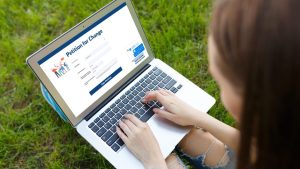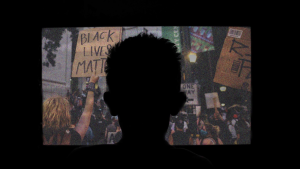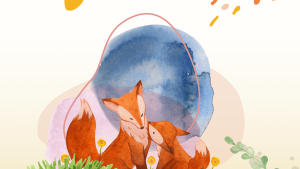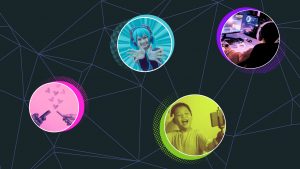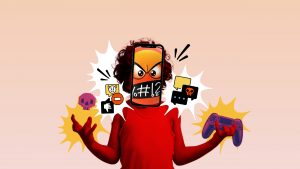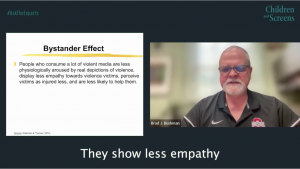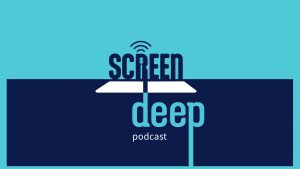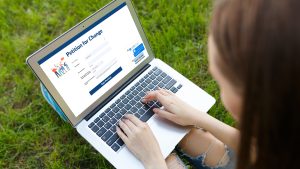
While young people have been key players in social and political movements for centuries, digital media have changed the landscape of tweens’ and teens’ activism and civic involvement, especially in the midst of the pandemic.
Children and Screens’ #AskTheExperts webinar “Young Voices Online: An Exploration of Teens’ and Tweens’ Civic Engagement” was held on Wednesday, May 5th, 2021 at 12:00pm ET via Zoom. A panel of interdisciplinary experts, moderated by Henry Jenkins, Primary Investigator for the Civic Paths Research Group at the University of Southern California, discussed how young people utilize digital media for advocacy and participatory politics, what motivates teens’ involvement around civic issues, how tweens and teens identify what causes matter to them, and what steps can be taken to support children and teens as they learn about and participate in social movements.
Speakers
-
Henry Jenkins
Provost Professor of Communication, Journalism, Cinematic Arts and EducationModerator
-
Kristian Lundberg
Associate Researcher
-
Ellen Middaugh, PhD
Assistant Professor, Child & Adolescent Development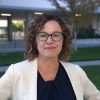
-
Ashley Rogers Berner, PhD
Director; Associate Professor
2:19 To set the stage, Dr. Henry Jenkins shares stories of famous movements which showcase how youth build capacities for future political lives and the ways in which youth have taken action in their communities for many years. Dr. Jenkins discusses how digital media are changing the landscape of youth civic engagement and participatory politics, and situates the conversation within the context of current political and social issues.
7:43 Bringing her developmental perspective, Dr. Ellen Middaugh, Assistant Professor of Child and Adolescent Development in the Connie L. Lurie College of Education at San José State University, shares the keys to supporting young people as they get involved in civic and social issues. She highlights the vast impacts of youth-led movements and elected officials speaking directly to young people, and walks parents, educators, and others through the roots of civic engagement and its developmental process, which involves youth finding their voices, passions, purpose, and community. Dr. Middaugh reminds parents that civic engagement might stem from involvement in communities that are not necessarily obviously civic organizations, such as gaming groups.
22:16 Kristian Lundberg, Researcher at CIRCLE in the Tisch College of Civic Life at Tufts University, offers a data-driven reflection on how young people are getting involved today, as well as the many ways young people were more involved than ever in the 2020 election season. Lundberg emphasizes the power of young people’s media content creation; this creativity and influence on what young people are consuming is allowing youth to empower each other to influence lasting, positive change. He also shares a number of ways that youth, even before they are old enough to vote, can safely get involved and move the needle on policies and social movements that matter to them.
34:20 Before young people can get involved in meaningful ways, they require background knowledge and wisdom to support their efforts. Dr. Ashley Berner, Director of the Institute for Education Policy and Associate Professor in the School of Education at Johns Hopkins University, provides practical tips for parents and educators to support the development of background knowledge of civics, comparative politics, geography, world religions, and more. She encourages parents and educators to build children’s capacities for civic activity by, for example, supporting involvement in student government, speaking with local elected officials, or joining parents in their civic efforts. Most importantly, Dr. Berner implores parents and educators to work hard to help children develop civic tolerance by arguing ideas rather than disparaging individuals.
Joined by Dr. Parissa Ballard (20:30) and Marc Prensky (1:03:10), Dr. Jenkins and the panelists answer several questions from the audience, including inquiries about how to handle negative comments, tips for mindful engagement, leveraging technology to build civic capacity, supporting children of different ages with different resources, and more.
[Dr. Pamela Hurst-Della Pietra]: Hi and welcome, everyone. I am Dr. Hurst-Della Pietra, president and founder of Children and Screens Institute of Digital Media and Child Development, and host of the popular expert webinar series. We have all heard that famous Whitney Houston songline: “Children are our future.” However, I, among others, recognize that children are not only our future but also our present. Young people around the world are truly changing the world by speaking up and speaking out in ways they never could before. Today, we have convened an outstanding group of interdisciplinary experts on youth civic engagement and participatory politics to discuss how teens and tweens are utilizing their digital media to engage with civic and social issues, as well as how you as parents, educators, and other role models can support them as they discover what’s important to them and engage in important issues and forums, both on and offline.The experts have reviewed the questions you’ve submitted. They’ll answer as many as possible during and after their presentations. If you have additional questions during the workshop, please type them into the Q&A box at the bottom of your screen. When you do so, please indicate whether or not you’d like to ask your question live on camera, if time permits, or if you prefer that the moderator read your question. We’re recording today’s workshop and will upload a video to YouTube in the coming days. All registrants will receive a link to our YouTube channel, where you’ll find videos from our past 30 webinars, which we hope you’ll watch as you wait for this video to be posted. It’s now our great pleasure to introduce our moderator, Dr. Henry Jenkins. He is the Provost Professor of Communication, Journalism, Cinematic Arts, and Education at the University of Southern California and the founder and former co-director of the MIT Comparative Media Studies Program. He’s the author of several books, including two that were just released this spring, and is the co-host of the “How Do You Like It So Far” podcast, which explores popular culture in a changing world. We are so glad he is here with us today. Welcome, Henry.
[Dr. Henry Jenkins]: I’m so happy to be here and happy to welcome the public to this event on young voices online. In the past few weeks, I’ve watched two films which speak powerfully to today’s topic. The first is Edward James Olmos’ film “Walkout,” which is a docudrama about the 1968 student protest in Los Angeles, which led to significant reforms in school board policies affecting students and the emergence of, as the key factor in the emergency of the modern Chicana/Chicano movement. The second is Nicole Newham and James LeBrecht’s Crip Camp, which was up for Oscars for documentary this year and has just been nominated for a Peabody Award yesterday. It was produced by the Obamas, and it deals with a group of students who come to a summer camp where they find voice, develop community, build capacity, and construct networks that they later will rely on in leading the disability rights movements of the ’70s, ’80s, and ’90s. Both of these films show things which we found to be true as my research group participated in the MacArthur Foundation’s Youth and Participatory Politics network. Youth, youth marks a period of time for building capacity for future political life, as Crip Camp shows us, but it is also a time to take action to impact issues affecting the lives of your own community, as Walkout showed us. Both these films represent a pre-digital era. Now, new media is rapidly expanding opportunities for civic and political participation, expanding the scope and speed of youth speech, but also expanding risk and anxiety. Walkout, in particular, pictures the conflicting feelings a young girl’s parents have about her political participation as they are concerned that their daughter has fallen into the company of troublemakers gives way to pride in her leadership and commitment to her community. Many parents confront such situations and ambivalences today. Young people have taken leadership roles in campaigns for environmental justice and gun violence worldwide. They’ve spoken out for Black Lives Matter, the Dreamers, against hate crimes against Asian American and Pacific Islanders, in favor of indigenous rights, and so forth. And they’ve led voter registration efforts on both the right and the left to get more of their peers to participate in the traditional political process. Parents and educators should feel pride, but there’s also still a lot of fear and uncertainty out there, which we hope to help address today. We start from the premise that youth voice matters, that youth voice may, and but we also should add that youth voice may take different forms than it did in the past. It may involve the use of popular culture as a civic vernacular, as my own recent research has looked at. It may involve gaming or fandom as organizing platforms. Young people are making media on their own, without the traditional spokespeople, and are circulating memes as part of their political speech. But they’re also registering people to vote, putting posters up, marching, speaking on radio and television. All that said, we also need to recognize that, as we speak today, youth voice is under threat. As a former student journalist who stood up to censorship at both the high school and college level and has been a lifetime supporter of the Student Press Law Center, I need to call attention to a case currently before the Supreme Court, which would allow schools to regulate students’ speech off campus and outside of school hours. The stake of this particular case may be deceptively trivial. It involves a young girl grumbling and cursing about her school on social media. But the larger stakes threaten, of this case, all political speech by high school students made off campus in the service of any cause for which any school official or school board disapproves. So as we think about student speech and student voice, we need to recognize a responsibility to protect the right of all students, all Americans, to participate in the political process. Today, we’re going to hear from the experts. We’re going to ask each of them to talk to us about their current research, and we’re going to offer a chance for them to address the questions you’ve submitted and others that you may come up with as you listen to them. Dr. Ellen Middaugh is an assistant professor of Child and Adolescent Development in the Lurie College of Education at San Jose State University. Her research focuses on the influence of varied social context on youth civic identity development and on the implications of digital media for positive youth development.
[Dr. Ellen Middaugh]: Great thanks, Henry. I’m just going to share a few slides to talk a little bit about what motivates youth civic engagement. I study this on and offline. Just a quick… It’s my Twitter handle if anyone wants to follow me. Um. So one of the things that I’m concerned with is how do we protect that youth voice but also develop it? What are the on-ramps that help young people get involved? So I want to start with the good news. Generation Z is quite politically active. We’ve had a record turnout in the 2020 election. 85%… This is Circle data, which Kristian may speak to as well… have agreed that youth have the power to change things in the United States. This is dramatically different than how we used to talk about youth civic engagement 20 years ago. So the question is, what’s helping? Typically, when we talk about youth civic engagement, when there’s a dip, it becomes a conversation about them being apathetic and cynical or self-centered. And then when there’s a rise, it’s about them being kind of publicly spirited. But in reality, a lot of what makes a difference is the opportunity. So some of the things that have helped… Recruitment is really important. Are people inviting young people into the conversation? So youth-led movements, we’ve seen being asked by other young people to show up, as in the March for Our Lives, Black Lives Matter campaigns for indigenous rights, environmental rights. And elected officials are actually speaking directly to youth. So we saw Alexandria Ocasio-Cortez going to where young people are in the popular game “Among Us” to encourage youth voter turnout. So I want to step back a little bit and think about, since we have a lot of parents in the audience, what are the roots of youth civic engagement and what can you do to kind of help your young person find their outlet? So, there’s a lot of research that suggests there are three components, and these can happen in different orders: finding your passion and purpose, finding your community, and finding your voice. You may have a teenager who has a strong voice, has a lot to say but isn’t sure what to do with it, and so then they may need to find sort of who’s the community they’re going to connect to or what purpose are they going to channel it toward. You may have a teenager in your life who’s really active in a community but hasn’t figured out, kind of, how that community can help them express their voice. And so you can think about this from different directions. So I just want to share a little bit of how to do each of these things. So I do a lot of research interviewing young people, some who are active and some who aren’t, about kind of what sparks for them. So one of the things that helps young people get involved is when they discover the things they’re concerned about don’t just impact them. So a lot of times young people have concerns about tuition, about education, the quality of their schools. And so being able to see, especially you can see this online, other people are talking about this, and suddenly their private concern is a public issue. A recent interview I did with a young person who’s active on social media was talking about realizing her personal experience as a Muslim American and um experiences of discrimination. Started to see online, there are ways in which she can start to shape the public narrative. Uh Being part of communities that connect to identity and interest. So when we think of youth civic engagement, we often think of organizations like our San Jose Youth Commission, where young people come together and speak up to politicians. But the entry points and the communities that matter are going to be different for different kids. So sometimes my colleagues at the Black Youth Project, really motivate, and which is led by Kathy Cohen, really pull together and motivate young people to speak about issues that face their community as Black youth. One of my favorite recent documentaries I watch, “We Are the Radical Monarchs,” it’s an alternative Girl Scouts, and bringing together centering young women of color, starting in elementary school, to kind of talk about their shared experience, develop their community, and then how to improve their community grows out of this. Other young people might find they do have a passion for issues like ecology and environmentalists. Or we see a lot of research, some I’ve done with Jo Khan, but also from Mimi Ito, and I think Henry’s work speaks to this as well. That when young people have passions, it might be gaming, it might be fandom, how joining that community then sometimes creates a group with which you can be inspired to do fundraising, speak up for things. So the entry points are going to be different. So for your child, kind of thinking about what’s important, whether it’s important to their identity, and how can they find groups to express that through. And then finally, and this is something I am super passionate about, is having opportunities to be heard. Some young people are already outspoken. Others need to discover that people care about what they think. And so I just want to share – how am I on time?
[Dr. Henry Jenkins]: I think you’re fine.
[Dr. Ellen Middaugh]: I’m good. Okay, I wanted to share. I’ve been partnering with the Y Plan group out of UC Berkeley. They work in schools with young people and teachers, but they actively cultivate an audience for young people. So they explore their community. They do action research, but then they connect them to city officials to actually hear what they have to say. So I just want you to hear a little bit of their experience. “I think the one thing that Richmond has done very well in becoming a strong partner with Y Plan is that we have made that connection genuine, and we have listened, and it has been true empowerment. It’s like having volunteer-informed staff members involved, doing research. It’s of that quality, and it’s also very experiential. For us, working with the city projects and on the projects that they select, they inform us, and there’s an immediacy to their impact. With the Y Plan project, we created a survey. 350 students answered it. They told us how the relationships with the students and teachers are, student-to-student relationships, what they see in the building that they don’t like. It was a great experience for me because I learned that I could speak up and speak out about any issues that I see around school or around my community. One of the beautiful points of Y Plan is that the partners are crucial. The team is about, ‘We’re going to round up clients that already understand that youth voice matters. We’re going to get people interested in saying, ‘What do you already have in your work that could use and incorporate and actually bring to life something that youth say is important to them?’ It really motivated me even more to actually make a change in our community because like before Y Plan, honestly, I’d be like so careless. During Y Plan, I noticed that I could actually be part of the change. Their experience is theirs. It’s their gift. The projects they work on, the spaces that they design, the amenities that they ask for, when we’re able to show them that their voice created it, then even though, you know, they become adults and they kind of move on from that place and that voice, they have a legacy that is something that they can be proud of. I really feel like it’s not just, if you know, you build it, they will come, but if they build it, they will come back. One of the things that really surprised me about the students is that they equated success with leaving Richmond, with leaving their community. The city was kind of the other. If we’re to affect real change in the community, it has to be something that’s intergenerational. Before Y Plan, I didn’t think that adults would listen to the youth about problems that we have. After Y Plan, I found out that that’s not true. They’ll listen as long as you speak up and speak out about it. Don’t keep it to yourself. I think the one thing that makes the Y Plan unique for us is that it’s not a made-up project. It’s something that is real. We provide some projects. The Y Plan provides the structured learning, and it’s a real opportunity to hear the voice of the future.” For some young people, they already have things they care about. For others, being connected to people to listen to them helps them discover that voice and efficacy. And so, um, one of the things I’m working with Y Plan on is how do they take advantage of some of the digital media tools to be able to connect to audiences both within their local community, but through using partnerships with. For example, Paul Allison runs Youth Voices Live, which is a social network to connect students among schools. I’ve done some research that says having someone respond to your voice and learning to cultivate that audience can be really powerful. And so I think I’ll just go ahead and leave it there to transition to the next person.
[Dr. Henry Jenkins]: Thanks, Ellen. We have an opportunity to ask Ellen a couple of questions that were submitted by the audience. I’m going to merge two questions together that come from parental concerns about students’ voice. The first question was, “How do you help balance mental health and civic responsibility?” And the second, that seems closely related, is, “Is it safe for my daughter to post her political opinions on social media? Does it have a chance to ruin her reputation or hurt her chances of getting into college?” So together, they represent three related fears about what happens when young people speak out.
[Dr. Ellen Middaugh]: Yeah, so I think those are great questions. In terms of mental health, I think some of it is talking to your child about their media diet and kind of what they may be exposed to. There’s been a lot of racial trauma, sharing videos online, seeing violence amongst youth of color. And so kind of looking at the media diet, where information is coming from, and kind of balancing exposure. But the other thing I want to point out, and I believe Dr. Ballard is here, who’s done some really interesting research on how activism and having that outlet to actually speak up and speak out can actually give youth a better sense of control and help ameliorate some of those stressors of being in an environment. So that community connection is so important. And I would say, in terms of political expression online, it’s always, there are always risks when it comes to political expression. And so the job of parenting in high school is really about, they’re about to go out into the world. And so helping them learn how to manage those risks and kind of think about, all right, what are you putting out there? How are people going to view it? What could possibly be done with it? And again, I would say interacting with being part of a community where you have that community support. Most colleges are very supportive of youth civic engagement. College is often where young people are activated. So I’m not sure I would worry about it as much from the college perspective as much as kind of helping your child reflect on what they’re putting out there and how it might be seen.
[Dr. Henry Jenkins]: So, and since Dr. Ballard is here, we’d love to have her share a little of her research with us if she’s able to speak out.
[Dr. Parissa Ballard]: Hi, is this working? Oh wonderful. Thanks so much for the shout out of my research and inviting me to say something. I thought it was such a great question about kind of the intersection of public expressions of your opinion and how it affects mental health. Definitely something I’m really curious about myself. Ellen was pointing out, I’ve done some research showing that that civic engagement, even when it’s public, can be health-promoting. It seems like it can be really empowering. It’s really important to create a supportive community for young people when they’re doing that and also prepare them that it also can be really stressful. And I think a big direction my research is going is trying to understand when is it stressful and how can we put appropriate supports around young people so that they are sharing their voice but not being asked to solve problems that are really entrenched and difficult and complicated. And it’s really a developmental process. I think when young people find their voice and find issues that they’re passionate about, like Ellen was saying, then also connecting them with the history of the social causes and connecting them with other groups that are doing that same kind of work, I think that can be really supportive for young people. But it is something I think to be so careful about, to encourage young people to get engaged, but also attend to when it might become too stressful or overwhelming. So a great point, and thanks for inviting me to speak.
[Dr. Henry Jenkins]: Thank you. Okay, we’re going to move to Kristian now, Kristian Lundberg, who is an associate researcher at CIRCLE. He conducts research and performs data-driven analysis of youth political behavior and voter participation, young people’s impact on policy and electoral outcomes, and youth engagement in civic life more broadly. So, Kristian, take it away.
[Kristian Lundberg]: Amazing! All right, well, thank you so much, and thank you, Ellen, for sharing some of your research, which is very interesting and very near and dear to the heart of what we focus on at CIRCLE. And thank you again to Dr. Hurst-Della Pietra for putting us together, and for everyone for being here. This is an amazing gathering of minds. So, I’m going to share my screen. I have a couple of slides thrown together, and I will also be talking. All righty, are the technology gods smiling on us, and we all see this presentation? Amazing. Alrighty, so hi everybody! My name is Kristian Lundberg, and I’m a researcher at Circle, a non-partisan research center that’s part of Tisch College of Civic Life at Tufts University. And so at CIRCLE, we study youth civic engagement across a variety of metrics and fields. It includes all of the ways that young people participate in civic, political, and social life, from youth voting to civics education to youth participation in media in digital and offline communities. So in many ways, 2020 was a watershed moment for youth civic engagement, from participation in activism through movements like Black Lives Matter, Sunrise, March for Our Lives, and other social justice efforts, to volunteering in their communities and in their families in response to the COVID-19 pandemic. Young people, and especially young women of color and young women and young people of color, made a tremendous contribution to civic life and to society at large in 2020. Now, what I wanted to talk about today was why was 2020 the moment in which young people made their voices as strong and as powerful as ever? Well, one particular topic that I think deserves more exploration is an extension of what Ellen talked about in her presentation: the power of young people creating media and creating civic content on social media. Now, when we think about media literacy or young people engaging with media, whether it’s legacy media or social media, we usually think about it as a consumption model. In other words, young people read things online and interpret them the way that you might with a newspaper article or a video. Now, this is still a very important model for how young people engage with what they see on the internet, as we all do when we read the New York Times, for example, or watch YouTube. However, social media technologies create the opportunity for another type of engagement with media: as content creators. So young people can participate in media not just by consuming information and consuming data, but also by making blog posts, videos, tweets, comments, fa Facebook posts, Instagram pictures, and other forms of self-created media. And these forms of created media, or media creation have potentially powerful civic implications and implications for learning and youth development as well. Now, the idea of influencers often gets a bad reputation. They seem like people who just show for products and don’t have real jobs. But in truth, when we engage with our communities and engage with our friends, our families, and so on, in a way, we are also micro-influencers. We’re trying to influence and talk to people within our networks, share ideas, and build networks of friends, neighbors, and other folks we trust and identify with. And in the case of some political content, these are people that we’re trying to convince or join to our side, or get to volunteer or participate in activities with us. So, from our initial research, this mode of media engagement, in which young people, and really all people who engage with media, are active or agents, are creators, in addition to just consumers of media, is especially powerful for bringing young people into civic life. Our research shows that when young people hear about elections from social media, while they do still hear from social media companies, the most common source of information about elections and politics is still family and friends. And so it turns out that hearing about elections from online sources and hearing about elections from friends and family are not independent of each other. Think about the people that you see on social media. Well, they’re still people that you kind of know. They’re your Facebook friends, your Twitter followers, and so on. And then, if you think about the people whose posts you care about, whose media that you actually do care about, these are the people who are the closest to you. These are your friends, your immediate family, your closest classmates, all of the people that are in your immediate life off the internet as well. And so, when you see online content from people that you know and respect, this provides young people with information from a trusted source, and in a way, it’s a secure entry point into engaging in political and civic life due to positive peer influence, peer pressure, doing a good thing, and encouraging young people to participate. So, moving on to the next slide, you can see this. So, what we’ve seen in our initial research is some really powerful initial data about the ways in which youth media creation played a pivotal role in the 2020 elections. So according to our survey data, 45% of young people in America created content about the 2020 election, and Black and Latino youth created online content at the highest rates of all young people. And over 60% of young people said that seeing young people create social media content helped them feel more informed, more represented, and more heard. And finally, this is really interesting, is where we need further research and exploration: young people who share their experiences online, commented on other people’s posts, or in other ways engaged through media creation were between 5% and 20% more likely to say that they voted. So, this is really important, especially considering that young people set a turnout record in 2020. This chart has been getting a lot of play on social media, and we’re really excited about it. But half of young people voted in 2020, which is a record, most likely in pretty much any election since the passage of the 26th amendment. So, young people set a turnout record and, in many ways, are setting new heights in terms of engagement, both through elections and through other forms of civic action. So, overall, some really positive signs, and we think there is a powerful relationship between creating content and engaging through social media and participating in civic and political life. So, in conclusion, I want to stress that social media, of course, has a dark side, and it deserves emphasis and caution, especially from parents and adults. However, social media has also been a really powerful tool which young people have used for organizing, for developing civic skills, for developing self-identity, and for self-expression. So, it’s important for adults to encourage media creation and youth agency and to recognize all of the really amazing things that are happening on these new digital platforms. However, we should also recognize that there are still barriers to engagement online that exist for many young people, including the 8% of young people who don’t have access to the internet. And, of course, that breaks down differently when you look at disadvantaged young people from marginalized and minoritized communities. However, overall, the 2020 election and this past, honestly, four years of young people engaging online and offline show that youth media creation can be a really powerful force for developing young people into active and informed citizens. Anyway, that is it for my presentation, and thank you so much again for having me. I’m happy to answer any questions that I can.
[Dr. Henry Jenkins]: Thank you, Kristian. Uh, we received a question from a parent who asked, “My teen is discouraged because he can’t vote. What can he do to get involved?” And I think you’ve given us some examples here. I think the question comes out of uncertainty about how broad or narrow the category of politics and civics is. What counts as politics at the current moment? And I’d like to have you address that parent’s concerns. I’d also like to think a little about the effectiveness. Are these alternative forms of politics you’ve outlined things that aren’t moving the needle on public policy issues, or are they ways of keeping youth occupied in between doing school and homework? How do we actually think about the effectiveness of these devices?
[Kristian Lundberg]: Yes, thank you for asking those questions, and those are all really good questions and deserve much longer answers than I’m going to be able to give in this format. But, um, to answer the first question about how young people can engage before they turn 18, this is another really important research area for CIRCLE because at CIRCLE, we like to talk about growing voters. Nobody is born a voter, and voting, like any other habit, requires a lot of practice and diligence in order to be able to maintain that habit later in life and to ensure that young people, when they turn 18, have all of the tools, information, and access they need to be able to actually vote when they turn 18. So, for young people out there who are younger than 18, there are still so many ways you can get involved and make your voices heard on issues that you care about in your communities. And, in fact, engaging with your communities, as Ellen mentioned in her presentation, is one of the strongest ways in which young people can share their expertise and make their voices heard. So, for young people, if there is an issue in your school or in your community that you have an opinion on, you should absolutely make your voice heard and reach out to other stakeholders in the area to try to, again, build networks and engage with a wide variety of people. Oftentimes, we like to think about politics, Henry, as you mentioned, as this big national sort of election that happens every four years where one voice seems like a drop in the bucket compared to the millions and millions of people who are voting. But that’s why local engagement, again, as Ellen mentioned in her presentation, is a really powerful force because young people are, in many ways, experts on many things in their local communities. And this is also the case because youth voices are so often excluded from local government because young people don’t have a seat at the table. So I would say, um, focusing on issues in your local community that you care about and making your voice heard through that sort of, so those sorts of modes of expression and, again, engaging with your networks both online and offline can be really powerful. Now, to the second part of your question, Henry, which is, I believe, about how effective are these new forms of engagement compared to traditional forms of engagement? Well, what we found in Circle’s research is that oftentimes online engagement transfers to offline engagement as well. In other words, if you start by sharing or liking or commenting on posts on social media, that can prove to be an entry point for a lot of young people into engaging offline through traditional forms of civic activism, such as attending a march or demonstration, or a protest, or boycotting businesses, or doing other things in real life that we like to think of as not slacktivism. So I know that online engagement tends to be considered less effective or often gets criticized for being less effective, but what we found is that online engagement can prove to be an entry point into the ecosystem of political and civic engagement for a lot of young people. In other words, if you see young people on social media doing cool things or taking action, you will be inspired yourself as a young person to follow along. So, there’s a lot more to talk about, of course. It’s a really amazing question, and thank you for sharing that.
[Dr. Henry Jenkins]: Okay, thank you. We’re now going to bring on Dr. Ashley Berner, who is the Director of the John Hopkins Institute for Education Policy and an Associate Professor of Education. In that role, she’s developed several tools for educators. In addition to her academic career, Dr. Berner has taught in a Jewish preschool, an Episcopal secondary school, and an open university in Louisiana. Quite a range of educational experiences. So, take it away.
[Dr. Ashley Berner]: Well, thank you so much, Henry, for the kind introduction, and thank you to the audience and to my fellow panelists. This is a really, um, a really important conversation, and I’m delighted to be part of it. So, I wanted to pull back for a moment from the online-specific conversation and also from the most recent election cycle and talk a little bit about what international researchers and democratic school systems around the world are looking for when they talk about the next generation of democratic citizens. So, high level, there are four adult capacities that we’re all kind of pulling for. The first is political knowledge. The second is political skill. The third is civil tolerance. And the fourth is the habit of engagement in community and political life. So, I want to just back up for a moment and go look at each one of those four and talk very briefly about what schools can do and what parents can do to foster each one of those four. So, here’s the first. Again, it’s political knowledge. Now, I like to think about political knowledge in terms of background knowledge that kids need to know to really make sense of the world around them and of human behavior and of international relations and so on. So, here we are not just talking about knowledge of how the US government works or how a bill becomes a law, but we’re talking actually about, for want of a better term, a liberal arts education that includes Asian history, African history, geography, geopolitics. It also includes comparative religion and ethics and all of the things that kids need to bring to reading, even a simple editorial. So, we’re talking there about background knowledge, and again, that gives us many things. It gives us, for one thing, wisdom about what’s happened before and how difficult it was or why things are the way they are. So, what can schools do here? And our institute does a lot of work on this. A strong, robust, and challenging curriculum, obviously. Pedagogy and excitement and engagement is a big part of that. But if you’re a parent, you need to make sure that your child’s school is really providing challenging, world-class knowledge for them to just drink in and become experts in. Kids love this. Parents. This is a great opportunity to build content knowledge about the world. You know, you can… little tiny children can learn about states. They can learn about maps. Upper elementary school kids can really play games with globes, find that country, and things like this. They’re very, very basic things that parents can do. Our institute actually, some of the families that are on our team, last summer picked areas of history and found materials across the age range of their kids so they could have a community conversation, as it were, around the dining room table. So, the background knowledge is really important, and again, having it well-delivered from teachers who’ve been supported in that way is very important. So, that’s political knowledge. Political skills. This is the habit of clear writing, engagement, rhetoric, being able to interpret laws that are being proposed and bills that are being proposed. So, what can schools do with political skills? Ensure excellent writing and stage debates. I mean, this is really, it has an independent and positive impact on long-term skill building. Having kids take opposing sides of important issues. Parents can also do things like writing your, some of the civic engagement pieces we’ve heard about this morning, writing to your elected officials, making a petition, recruiting peers, running for class elections. All of these things are capacity-building. Parents can do the same thing. You can help your kids, uh, go with you to, um, to your mayor’s office, to political gatherings. You can, um, have your children write the mayor about things that are important to them. All of these are learned behaviors, and parents have a great role to play here. The civil tolerance is the piece I really, the third capacity, and that is what I really want to focus on and spend a lot of time in our work at the institute focusing on civil tolerance, the capacity to believe things very, very, very strongly, articulate them clearly, and tolerate someone else’s opposing view. Now, this is really, really, really hard, and the adults in the United States don’t do this very well, at least in the last several election cycles. It’s about arguing about ideas rather than disparaging individuals. And what schools can do is provide what is called, in the literature, an open classroom climate, where teachers present multiple viewpoints on important topics, where students are scaffolded to disagree with respect, and there are all kinds of strategies and learning opportunities for teachers with this, but it really, really matters. Um, parents, this is tough for parents. It’s hard for us, but we can model civil tolerance by acknowledging our strong beliefs or opinions and also not disparaging others who disagree. When the kids get a little older, we can watch two different news channels and compare the same issue being debated and discussed, how it’s presented. Teach kids that all knowledge is selected and that all information is filtered in some way. This is not a threat; it’s just something they need to be aware of. My parents did the great gift to me of inviting friends over for dinner who disagreed with them, and I could listen with, you know, open eyes to how they engaged and deliberated. And finally, the habit of civic engagement. Schools can do a lot here. My favorite model would be a service learning model where there’s the marriage of information and knowledge and skills and opportunity for the community. This has come out in many of the earlier conversations we’ve had today, but making sure that kids know the difference between what they want to happen and how it’s actually done, and what the limits are and how you push against those limits. And parents, again, this is something that is really important that the kids see us engaging in our communities, volunteering for something, doing things um together. One of my favorite books on this is by the late Rabbi Jonathan Sacks, who wrote “The Home We Build Together” about working together with people who disagree with you to solve common problems. We do not see enough of this, and that’s something else that families can do. So, the bottom line is what we’re looking for in adulthood is really integrated civic capacities, the knowledge, the skills, and the civil tolerance, the grace that we should be extending to people who disagree with us, the capacity to navigate compromise. I forgot to mention Model United Nations, but that’s a very, very effective way for children to develop all of those capacities, and many, many of our communities, urban, suburban, rural, probably needs this more. Um, but they live around the country and are really great opportunities. So, at the end of the day, in my view, it’s about the integration of all of these pieces, and schools play a role, parents play a role, and at the end of the day, it’s about real wisdom, I think. So, that’s all I have to say by way of introduction. I’m happy to answer any questions that you have.
[Dr. Henry Jenkins]: Thank you so much, Ashley. So we just got a question in from the audience, and this is a good chance to remind people that you can use the Q&A function below to submit questions to us in real time. And the question is, “What about encouraging civic organizations, political units, boards, etc., to have a youth participant reporter who reaches out to kids through media creation about what happens in the sessions from a youth perspective? Is anyone doing that?”
[Dr. Ashley Berner]: I think that’s brilliant, and yes, there are organizations that are doing that. In Maryland, where Johns Hopkins is, there was a youth representative on the state school board who came and reported back to the students. Rhode Island, which is the location of a lawsuit a year and a half ago, two years ago, about the right to education, in particular, to civic education, it was the youth movement that ran that and that started attending official meetings. So, absolutely, that’s a great idea. It’s a great way to have an induction into the political deliberation world.
[Dr. Henry Jenkins]: Let’s see, I just scrolled down past, uh, so I’m going to ask a question to Ashley and let you respond first, and then we’ll open it up to the rest of the panelists because we have ample time now to respond to a number of the questions which have come in. But the, I’m merging two questions together here, but was, “how can parents and schools protect kids from extremist views?” Is one question. And then, “how do we manage trolls and social media? My daughter has been really targeted, and I would like to know how we can mitigate this because it’s been really stressful”. So, can we merge these two ideas about anti-social uses of this technology?
[Dr. Ashley Berner]: Yes, I, yeah, so I do think that the best protection against extremism is that balanced approach to civic building capacities, is to make sure that students are aware of the kind of polarization as they grow older. That, and by the way, some schools do a really good job of this. So I know the Islamic schools I work a lot with the Council of Islamic Schools of North America, very protective of their kids in the online radicalization movements to be protective. I think the wisdom that comes from this well-rounded approach is very important. I also think we’ve got to, um, again insist that disparaging individuals is not part of democratic participation. It need not be, it should not be. And, um, I know that some of my other panelists have dealt with this much more specifically, so I think Ellen has some comments as well.
[Dr. Ellen Middaugh]: Yeah, actually, um, I was interested in responding to the, what schools can do in the 21st century, not so much on the extremism side, although I’ll just add, I think Ashley’s points are great on that. I think the other thing, um, coming from the youth development perspective that sometimes makes youth vulnerable is lack of feelings of opportunity or the things that make them vulnerable to many things, right? So when you have more opportunities to feel valued and your voice is heard, you’re less vulnerable to certain negative influences. In terms of what schools can do, there’s a great question in terms of what schools can do in the 21st century, and I wanted to build a little bit on what Ashley was talking about and talk about some…I don’t have an answer, but I’ve been working with colleagues on how do we build better online dialogue? It is challenging, right? You don’t always have the same social cues. You don’t always have a moderator. So one of the things we’ve been working with teachers on is how do you build, help students learn how to have productive conversations across disagreement online? So experimenting with moderated spaces, also analyzing their different platforms and the norms of communication vary. So a conversation you can have on Twitter is really different than a conversation you can have in a community on Reddit, like Change My View, which has norms of engagement and is moderated actively. And so helping young people think about where am I putting my voice out there, who’s there, what are the protections in place, and how do I indicate active listening when they can’t see my face, and how do I indicate respectful disagreement when, um, how are my words? So that’s something I’ve been really interested in working with teachers to develop models on, um, so that’s something that’s in play right now.
[Dr. Ashley Berner]: I just want to add one thing to what you’re saying. To Henry’s point about his daughter, it is incredibly stressful to actually give a position online in an article or Twitter or whatever and have someone attack you in an ad hominem basis when it has nothing to do with your argument. And I mean, my simple rule is, I will not engage. It is not incumbent on us to engage when someone is not engaging, when they’re simply attacking. And I think that is a great segue for young people into, um, you know, insisting on civility in their own communities and teaching them how to where the words they can use to say, “This is out of bounds for me,” as in, “Let’s argue about the ideas. What do you think about my ideas? Does this have merit? Why not?” And really, you know, pushing back on where appropriate or where it’s productive.
[Dr. Henry Jenkins]: Kristian, would you have something to add?”
[Kristian Lundberg]: Yeah, I think that, um, Ashley and Ellen’s points are really strong and powerful on this topic. I think that it is important to recognize what is like productive dialogue and what is dialogue that can allow young people to develop civic skills and feel empowered as a result of it. In which dialogue is actually having the opposite effect can actually mitigate or militate against civic engagement. So, I think like recognizing that not all forms of speech and not all forms of engagement on social media can have all of these salutary effects that we talked about is really important. So, again, I think that it’s a really fine line between enabling young people to explore and have the freedom to engage while also recognizing that there are some indeed dangers that lurk on these social media platforms. However, this is where I think that sometimes young people can be um sort of like people can have a like almost a too cautious approach when dealing with young people because oftentimes young people, because they are native to these platforms, are really good at also discerning between positive speech and negative speech, not always, not perfectly of course, and there is some assistance that still might be needed from adult stakeholders and mentors. But young people, in a way, are using these platforms in ways that are like even hard to keep up with. Like, they’re all these new technologies that are emerging, and oftentimes treating young people as the experts in these platforms rather than people who are like uneducated or uninformed about these platforms is, I think, another way of working positively with young people.
[Dr. Ashley Berner]: Some of it, some of it is our, you know, I, it’s a transfer of the old school, only insecure people make fun of other people, that, you know, my parents used to say to me when I was five, that, you know, you’ve got to be able to provide a framework for kids to disregard the, you know, the pot shots. To do, you know, this is not debate. If you want to watch a debate, we’re going to go look at a firing line debate from the 60s or like this is what real engagement looks like and provide a counterbalance and say these people, sadly, they don’t know how to have a real debate. So, if you can frame it that way, I can still say as someone who has, for minor things in my view, been, you know, personally attacked, as I’m sure all of us have, um, it is not pleasant. It is brutal, and it should, it shouldn’t happen. You know, we need to, you know, do what we can to, to ignore or bracket that.
[Dr. Ellen Middaugh]: Um, can I, I just want to add one more thing, um, one, uh, what I’ve seen in my research is different youth have different tolerances for these kinds of things, and so, um, intolerance can be built, as Ashley speaks to, um, but for some, exposure to conflict online is very distressing. For others, they’re able to kind of put it in that space. So, getting to know your kid and kind of how they react to these things and helping them talk through and frame their response. And then, some of the interviews I’ve done, I, I, one of the things I’ve been learning from young people to try to share with teachers is they have all of these tricks for kind of figuring out, is this someone I should engage with? So, looking through their previous comments, looking through their profile, and sort of being selective about who they engage with and whether it’s going to be productive. And then using that selective mute button if, um, if you’re being trolled, right? Don’t feed the trolls.
[Dr. Henry Jenkins]: Uh, so I want to build on something Kristian was talking about. We got a lot of questions here about the adult role in the political life of young people. In the 1960s, the slogan was ‘Don’t trust anyone over 30.’ Maybe today, the slogan should be ‘Don’t trust anyone over 20.’ And many adults perceive young people as better informed of the digital environment than they are. Yet the reality is, power still rests in the hands of the grown-ups to change public policy. Eventually, the message has to speak to adults. So, how and in what ways should adult political leaders enter into the process of youth voice and youth political movements?”
[Dr. Ellen Middaugh]: Listen, it’s where I always start, right? Rather than coming in and saying, ‘How can you talk and get involved in what I’m doing?’ What are you, what do you care about, and how can we help? It’s often a better approach. Um, and then I just also wanted to say, uh, not all young people are digital natives in the way we think, right? They use social media in really interesting ways, but when I have students do things with social media in class, many of them don’t. They’re not producing, right? They’re very comfortable consuming. But learning to produce is, and so again, asking what are you interested in sharing and how can I help you share that?
[Kristian Lundberg]: Yeah, thank you for sharing, Ellen. I would totally echo your point on listening. I think that oftentimes young people come in guns blazing, trying to, like, make an impact when really, sometimes what adults should do and the proper role for adults in certain contexts is to take a step back and to understand. And not only to listen and understand but also recognize that adults have certain privileges, as Henry mentioned, and they have certain, like, power that young people don’t have access to. And oftentimes, adults can be unaware of the sort of power and privileges they hold and the ways in which that power, because it is inequitably distributed, can prevent young people from actually engaging and can have a really negative effect towards youth engagement. So, I think for a lot of adults, it starts with reflection and understanding of, ‘Okay, how are these spaces, like local government, for example, dominated by adults, and how can we work to undo a lot of the inequity that exists in the power that’s distributed between young people and adults?’ So, I think that listening, being aware, and being humble are good first steps for a lot of adults. And then, be allies to young people as opposed to leaders necessarily like sometimes young people are actually that served as leaders in certain circumstances and even though we like to think that adults are leading young people, sometimes it’s the young people leading the adults and that’s totally a fair model as well. So again, I think like listening, being humble, and being aware of the different privileges that they have is, are good first steps for a lot of adults.
[Dr. Henry Jenkins]: Okay, we have a question about how, how can we distinguish between civic engagement and entertainment online? What about memes? Are these entertaining moments also civic engagement?”
[Dr. Ashley Berner]: I can just say very briefly that, I, I’m not, yeah, I don’t, you know, I, I am so old-fashioned in that I think the internet’s a great tool, and social media is a great tool, but I don’t think there’s a bit any substitute for, for that transferring into face-to-face engagements with other human beings, face to face in the community. So, you know, I, I would, you know, just in the way that earlier generations limited their kids’ TV hours, I would absolutely put limits around kids’ online hours. I, you know, there’s, there’s, there, the limits are there, I think important for a reason, and parents have to adhere to that too. I mean, you know, you look at parents who are always connected, that is a problem. I, I’m maybe I’m just, you know, very old-fashioned here, but I do believe in a face-to-face conversation. So, that would be my first response. It doesn’t really answer the question specifically. I think Ellen, I can see your head dining, you’ve got more expertise with, um, you know, the memes and so forth, but I, I don’t think all engagement counts as civic engagement. That’s just my view.
[Dr. Ellen Middaugh]: Um, I mean, I feel like Henry, you can speak to the meme question quite a bit, but in terms of memes, I, I don’t think that’s a substitute for anything. I am always looking for points of attraction and so what gets young people’s attention and then how do we capitalize and build on that to draw them into all of these other forms of engagement as well. So, what memes can be good for is changing the framing of an issue. Um, hashtags are used for that, things like that, and this isn’t new to new media. Um, framing has always been part of organizing, but you know, the Black Lives Matter movement is an example of framing. They’re trying to kind of change the conversation. Sharing memes is an example of framing. The main reason I was nodding is because of something that I’ve seen, which is around media literacy education. So, we spend all this time in schools, um, talking to young people about how to distinguish real facts from fake facts, do sources. And when I’ve done, kind of, think aloud with young people, would you share this information, if there are facts in there, they will say, ‘Oh yeah, I need to look it up and see if this true.’ If it’s just a meme with no facts, that goes out the window. They’re like, ‘I would just forward that.’ Because those cues to make sense of the information aren’t there. And so, I think the way I think about it is more like connecting to their lived experience. What are you seeing? How is it shaping your understanding? What are you contributing to the ecosystem? So, not so much about whether it counts as civic engagement or not, but trying to understand their environment and how we can help them use their environment to express themselves and what’s kind of responsible participation. So yeah, no major plug for yes, let’s share memes as a form of civic engagement, but just that it is part of the information ecosystem and so how can young people kind of understand what they’re interacting with?
[Dr. Henry Jenkins]: So, Kristian, do you have anything you wanted to add? I do want to take my moderator’s hat off and jump into the ring just a minute, but I want to make sure the speakers get their chance first.
[Kristian Lundberg]: Yeah, I just quickly, I would, um, like agree with Ashley on the point that like yes, not all online engagement is civic engagement, and there’s definitely different forms of communication that have more and less civic potential. And I think another point there too is that there are a lot of young people who aren’t participating online and just sort of referencing briefly, uh, Candy’s question that she asked in the Q&A about, like, the communities that she works with which aren’t actually engaging online due to lack of internet access or other forms of connectivity. And so, I think like, again, one of the ways in which we can address the diversity of experiences that young people have in America is to treat people as experts in their communities and in their lived experiences, as Ellen mentioned, in making sure that we recognize that there are different ways in which young people are communicating, and how can we make sure that the ways in which they’re communicating, whether online or offline, are nutritious ways of communicating, so to speak.
[Dr. Henry Jenkins]: So, for me, taking my moderator’s hat off formally for a moment, for me, the meme is a kind of political shorthand. It is the grassroots equivalent of an editorial cartoon. And just as with an editorial cartoon in a traditional publication, we would see it as a concise, vivid embodiment of a perspective which we know and understand through reading more deeply in the rest of the paper. What we would hope is that students and youth respond to memes in much the same way. If it calls attention to something they don’t already know about, they should find out more. If it calls, if it evokes something they care about, they should pass it along. They should monitor the range of responses that are out there because collectively, memes build on each other in really powerful ways. In terms of the distinction between politics and entertainment, our research is talking more and more about civic imagination, the ways in which vernaculars from pop culture are used around the world to express political ideas. Think about the students marching through the streets of Hong Kong in the pro-democracy movement there, who have been singing songs from Les Mis, ‘Can you hear the people singing?’ as emerged as an anthem for their democratic aspirations. Think about people who dress like handmaids in the U.S. and battles over reproductive rights. We’re seeing everywhere. This language now, again, if it stays in the realm entirely of fantasy, it is not yet political speech. It may be pre-political speech. It may be a way of introducing issues to communities that don’t historically care about those issues and bridging divides intersectionally between different groups. But it is when it is brought into a larger conversation, when the shorthand of pop culture is unpacked by education, by political debate, by political discourse in ways that educate and don’t simply provoke youth response, that’s when it becomes a tool for effective civic engagement. So, to me, it’s a starting point, and it is really powerful. We’re seeing it everywhere. But it is not the end point of what a civic social process would look like. Okay i, we are joined now by Mark Prinsky who has been thinking about this question of entertainment and education for a long time. He’s someone who’s written a lot about games and other media, so I would welcome any remarks or questions he might have for us along the topic we’re discussing right now.
[Marc Prensky]: Thank you, thank you, Henry. Can you hear me? Yes, it’s good to see you. Um, it’s been a while. I, I want to say two things here, and not, not anything to do with games. I, I, that’s, that’s something I did in the past. But two things. One is the view that we are holding of youth, of kids, and I have recently started, stopped talking about kids and youth and students and learners, and started talking about people who happen to be young in the 21st century. So putting us all on the equal footing of people with obviously different experiences and different affordances. And I’d love to hear, uh, people’s comments on that. Kristian, I, I think it has very much to do with power, as you mentioned. The second is my real question is, what is different about the 21st century in terms of the affordances kids have and what they can do with them? So, as I listen to Ashley, and I appreciate everything you said, everything that you said we could have done in 1960 when I grew up and you did, and we said parents did this and stuff like that. So, is the 21st century just a continuation of the 20th century, or are there really important differences that we should be taking into account? Um, you know, for example, and we don’t have any, um, people who happen to be young on this panel, so we can’t hear from them, but I’d love to hear from everybody. Um, what your ideas are. Thank you.
[Dr. Ashley Berner]: I’ll just take a first shot at this. Um, I, I do think there’s continuity and discontinuity. So, um, from my perspective in education research and history and so forth, the, the sad truth is that we are continuing to under-challenge our kids intellectually. And, you know, you, you see all, particularly low-income children, if you are a low-income child, your chance of being given the very low bar of on-grade level material is about 15%. And at every income level, our kids are under-challenged intellectually versus our matched peers around the world. So, this, to me, is a burning concern that I can’t get away from. And I’m not sure that things have gotten better or worse since, you know, different studies or different way. In some ways, we are certainly not headed for a good path there. So, when you marry that lack of, in, of basic content knowledge with the algorithms that make social media, you know, enhance polarization, I am very concerned about the 21st century and what kind of world we’re sending our kids to. Now, as a modernist, someone who studies history, that’s my doctorate, human nature is, is pretty much the same across time and space. So, this, you know, good and bad and destructive and creative are all going to be in the mix all the time, in my view. So, my question is, how can we leverage the new technologies to, to really boost these wonderful capacities that we want to see? And just one good example there, I’d point to iCivics, which is using games and interactive tools to try to build civic capacity. It’s meeting kids where they are, but it’s also doing something very productive and fulfilling for kids. So, that’s it. I’ll get off my soapbox.
[Marc Prensky]: That’s great. I’d love to continue this offline because there are some, a lot of things to say. Mostly, we don’t challenge kids, not just intellectually. We don’t challenge kids to accomplish things. And a lot of kids can accomplish things, including in the civic arena, which are not necessarily solely intellectual tasks. And that is something that, that I think we should pay more attention to.
[Dr. Ellen Middaugh]: 100% to add to this a little bit. Um, so one of the things we’ve seen with digital, there are a couple of things that I, pieces that I’ve loved lately. My favorite historical analysis was looking at technological change at different points, right? And the fears that come with each technological change around, is the telegraph going to ruin the way we speak to each other? And at each moment, we’ve seen, um, this is Jennifer Light’s work, we’ve seen some, um, opportunities open up for people to get extra voices in there. And this connects to another piece of work I like, which is Craig Watkins’ work on the digital edge, talking about ways in which sometimes digital media creates opportunities for youth of color and low-income youth to show what they know in ways that aren’t honored or respected in schools. So, we want to take that asset-based model of what it is that young people are already good at, and how do we inspire them and connect to them, challenging them as well. But the challenge doesn’t just come in to participating in the ways we’ve already decided are the ways, but how do we again figure out what it is they care about? How do they want to express themselves? What background knowledge do they need to do that? And then, how do you challenge them towards that? But that really requires that youth-centered approach, which I know you are championing, Mark, which is, um, which I agree with. I love having youth panelists. It’s always my favorite part of anything, but it’s kind of starting with them, um, what’s in their community, what is it they need to do, and then they’re gonna, the challenge that they face will be received as supportive challenge rather than punitive challenge if you’re connecting to what it is that they’re interested in.
[Dr. Henry Jenkins]: Thanks, Mark. Thanks, Mark, for your participation.
[Marc Prensky]: I just say two things. One, the only new art form that has come out of the recent times, maybe the last 50 years, is hip-hop, which had nothing to do with adults whatsoever, grew out of jazz probably in some way, but, but basically, uh, so that’s when we don’t listen to the kids, and when we don’t, they produce something that we hadn’t thought of. And the second thing is, that’s, that’s the Socrates-Plato argument that you just, uh, that you just mentioned. Um, uh, Ellen, the, the Socrates thought we would lose our memories, Plato was the geek, he wrote things down, and that’s the only reason we have Socrates. So, it’s letting the kids sort of decide what they think is important is really a big piece of the picture.
[Dr. Henry Jenkins]: So, thanks for your participation, Mark. I need to move on to, when I,
[Marc Prenskys]: I mute, I mute and go.
[Dr. Henry Jenkins]: Thank you. So, there’s a question from a developmentalist in the audience, uh, who says, “I’m wondering if panelists might talk a bit about the civic developmental process and how we, as parents and educators, might think about meeting kids where they are depending on their age, developmental stage. Any evidence of, on pathways, supports, challenges, opportunities for online civic engagement for young adolescents (11 to 13) versus older adolescents and young adults (16 to 30).” Does anyone want to tackle the developmental part of this?
[Dr. Ellen Middaugh]: Sure, I’m happy too because I’m a developmentalist. Um, so, um, let me just make sure I’m tracking the pathway supports challenges up for online civic and yeah, so, um, I think that age range is really important when we’re talking about online because realistically, right, a lot of social media sites, um, youth aren’t even allowed on those until 13. Now they find their ways around that, but when we think about online civic engagement, one of the studies I’ve done, which wasn’t really about civic engagement, but around parents’ rules around social media, and looking at the developmental transitions because in adolescence, one of the things we see is privacy and autonomy become really important. And so parents, starting to, we see better developmental outcomes when youth are able to have control over things they see in their personal domain or their private, and having those privacy boundaries, and then also expectations of greater autonomy. And with the digital age, it’s a little complicated. It used to be privacy as your diary or your room or what you’re wearing. And so with the merging of public and private, that’s shifting a little bit. Some, like what I think I’m seeing, but I haven’t finished analyzing this data, so this is, but cell phones seem to be seen as a really private space. Social media, it blends, right? Some are like, “Yeah, my parents are on my social media,” and others say, “I don’t want them looking at it.” And so figuring out what those boundaries are, I think a lot of parents are experiencing is quite challenging. But I do think one of the things that I think is really important is giving young people kind of protected spaces to learn some of these norms, especially in the younger adolescent years, that they can bring into their public participation. I don’t know if that answered your question, Farisa.
[Dr. Henry Jenkins]: Okay, I’ve got… We’ve got a question here from someone who works with youth in low-wealth rural communities in Arkansas with limited access to internet and healthy civic structure. How do I make sure I’m giving the best and most current information to the groups I work with? What resources are suggested? And indeed, we got several questions that spoke to wealth and equality and access to the kinds of resources we’re talking about here. So, I’d like to see us speak to that issue more broadly.
[Dr. Ashley Berner]: Yeah, so we’ve worked with quite a few rural communities, and there is, um, there are, look, every kind of community has its own strengths and its own challenges. And one of the most interesting parts of the research recently has been on rural kids and field trips, and the rural educators who can take their kids to a lecture on the Holocaust or to an art museum or to, you know, art galleries or to nature walks. Getting outside of your community is really important, and it does have a positive impact on some of the civic measures that we want to see. I think the other is taking advantage of some of the online, um, you know, the online resources from, say, iCivics or the Bill of Rights Institute, and joining debate communities. You know, that can change your life if you’ve participated in debate communities, and some of these are happening online now. You know, COVID has had the benefit of forcing some of these major traveling team sports to really being online and accessible. So, I would, that’s my first response.
[Kristian Lundberg]: Um, one thing to add there, thank you for sharing that, Ashley. One thing to add on this topic is I think, as Ellen mentioned, an asset-based model for engaging with young people in rural communities can be incredibly important because, yes, maybe young people might not have internet access at comparable rates to people from perhaps urban environments or from wealthier communities. However, there are still ways in which young people are engaging with other young people and engaging in what we call civic life, broadly defined. And just thinking about some of the research that we’ve done at CIRCLE, like one study that we did with opportunity youth, young people who weren’t in the education or in the workforce, was instead of trying to reach them through online panels or other forms of surveys that young people tend not to answer to, and particularly so for young people without internet access, we empowered other leaders in that community. So, young people who are like the offline influencers, so to speak, to lead the research collection portion of that project and to reach out to other young people. And with other groups that we’ve worked with in the past who have been operating in rural communities, oftentimes empowering young people as experts and as leaders in those processes can be a really powerful way. So basically, just treating young people as experts again and making sure that young people are treated not as if they are lacking something or have a deficit, but also recognizing they bring a lot of assets to the table is a really important way for engaging with communities. And so, it’s also probably the case that, like, for me, I’m not sure that much about central Arkansas, but I’m sure that the young people in those communities are, in many ways, experts on how to reach other young people because they do it all the time. So, I think that’s just really powerful, is to empower other young people and deputize them as leaders in civic life.
[Dr. Henry Jenkins]: So, many, many of the practices we’re describing right now are global practices. One of the effects of the internet has been the breakdown barriers between countries, which may have radically different political traditions. So, there’s interest in comparative studies, on the one hand, and maybe how do we help prepare young people for the differences in global assumptions about democratic participation they may encounter online?
[Dr. Ashley Berner]: I mean, this is where, um, I can say, again, the curriculum is, it plays a part, and how it’s delivered again needs to be updated, needs to be created, needs to be engaging. But when you think about the fact that most OECD countries require comparative religion and ethics every year, K to 12, and, and, and that’s why they fund religious schools sometimes, you know, it doesn’t matter what you believe, what you think, you need to know how other people believe and think. And this is, this is where parents, I think, sometimes need, um, reassurance that exposure is not indoctrination. That exposure to different ideas and different ways of being is really a good thing and important to development and to long-term engagement. You can have, there are some organizations that have international conversations among students, classroom to classroom, and that’s a great learning opportunity. But basically, exposure is not indoctrination, and it’s important.
[Dr. Henry Jenkins]: Okay, all right. Well, we’re running out of time. We appreciate all the great questions that have been submitted. There are a few we weren’t able to get to, but I want to offer the panelists a chance to make a final observation or a comment for us. Ashley, since you’ve got the floor, why don’t you start us off?
[Dr. Ashley Berner]: This is a really important area, and thanks to everyone who came to join in the conversation.
[Dr. Henry Jenkins]: Okay, Kristian?
[Kristian Lundberg]: Yeah, um, I guess my closing comment, I would want to focus a little bit again on the concept of equity and making sure that when we talk about youth civic engagement and youth engagement online, we’re aware of the voices that might be left behind in different spaces, both online and offline. So, as I mentioned before, what we found is that for Black and Latinx youth, some forms of online engagement were actually particularly powerful for making their voices heard, especially because young people and young people of color are often excluded from traditional civic institutions like local government and like a lot of other sorts of forms of media and different ways in which young people traditionally have been excluded or power has been held in the hands of older people. So, I think again, focusing on equity and making sure that when we talk about youth civic engagement, we’re talking about the broad diversity of young people rather than a select group of young people is really important because young people are the most diverse generation that we’ve had so far, and their experiences both online and offline are also equally diverse. So, anyway, thanks so much for the panel, and it’s been great to be here.
[Dr. Ellen Middaugh]: Um, I mean, Christian could not have said what I would want to say better, except I’ll just add on to just how critical it is, especially when talking about youth who are not well-represented by our current system, to join in and support what they are interested in and what they are doing, rather than just asking how do we get them to come to our spaces or to the issues that we think are most important, because that’s going to be the more empowering. It’s how do you support what they’re where they’re already engaging and provide them opportunities, access, and connections to be able to do this work.
[Dr. Henry Jenkins]: Well, I hope you will join me in thanking our panelists for their participation and let me return the floor to Pamela, our host.
[Dr. Hurst-Della Pietra]: Thank you so much, Henry, Ashley, Ellen, Kristian, and the audience members that came on the experts for taking the time to be with us and share your immense expertise and insight. Thanks to all of you, our Zoom audience, for joining us, and to continue learning about this topic, please be sure to visit our website at www.childrenscreens.com and read our tips for parents and other resources. We’ll post a video of today’s webinar on our YouTube channel, to which we encourage all of you to subscribe, and we hope that you’ll share our resources with your fellow parents, teachers, clinicians, researchers, and friends. For more information, please follow us on Instagram, Facebook, Twitter, and LinkedIn, at the accounts shown on your screen. Our conversation addressing children’s well-being and digital media will continue on Wednesday, May 19th, when we’ll explore how children are building grit, resilience, and social-emotional skills in our digital world. When you leave the workshop, you’ll see a link to a short survey. Please click on the link and let us know what you thought of the webinar today. Thanks for joining us, everyone. Be safe and well.
